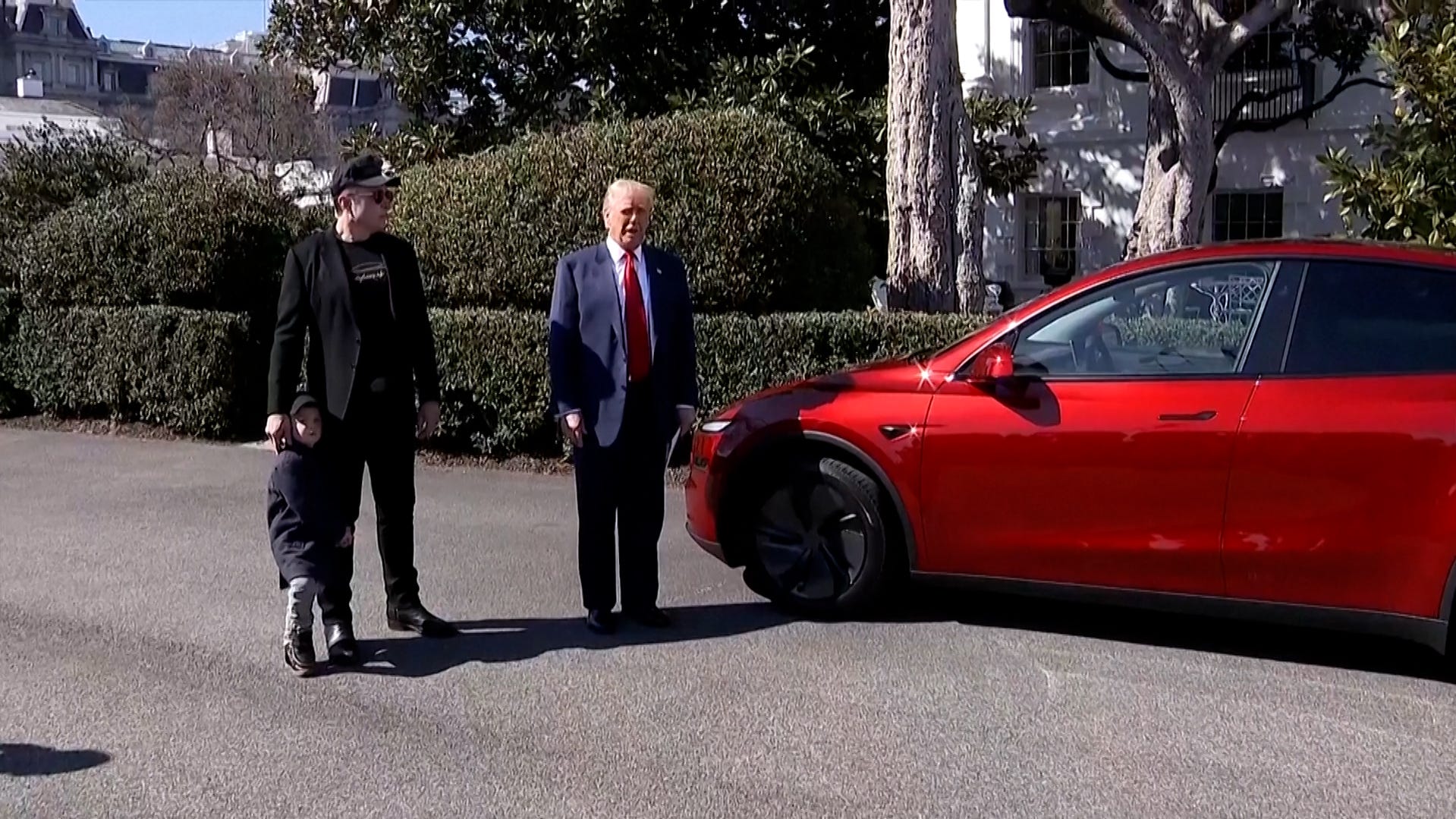What new version of Trump's 'Big, Beautiful Bill' could mean for EV car buyers and automakers
The federal electric vehicle tax credit of $7,500 is in the crosshairs of President Trump's reconciliation bill.

- The One, Big, Beautiful Bill Act is targeting the clean energy space.
- It proposes phasing out the $7,500 federal electric vehicle tax credit available to American car buyers.
- The tax credit's elimination could be have disastrous impact for Americans and the automotive industry.
President Donald Trump's One, Big, Beautiful Bill Act is officially moving to the House after making it past the Senate following some alterations. The bill is a proposed budget reconciliation aimed at increasing spending in areas such as defense and border security. It is targeting health care and nutrition programs like Medicaid and SNAP.
The clean energy sector could also face extreme ramifications if the bill is passed, including job loss and the termination of federal new and used electric vehicle tax incentives. The Senate altered provisions in the bill, accelerating the termination of new and used EV tax incentives from December 2025 to September 2025.
While this tax credit may not seem integral to the future of the automotive industry, its extinction could have more of an impact than you may think.
What the death of the EV tax credit means for American car buyers
The federal EV tax credit allows Americans to claim up to $7,500 for qualifying new electric vehicle purchases. This incentive drastically reduces the true cost of applicable new EVs, making them much more feasible purchases for the average American car buyer.
Take the Tesla Model Y as an example. It's the best-selling electric vehicle nameplate of 2025 so far, according to a Q1 sales report from automotive research company Cox Automotive. Tesla sold 64,051 Model Y units in the first quarter of 2025. The 2026 Model Y currently starts at $44,990 without the incentive. When drivers claim the tax credit, its true cost is closer to $37,490, making it a much more affordable small electric SUV.
If the "One, Big, Beautiful Bill" is passed, the new EV tax credit and used electric vehicle tax credit ($4,000) could be completely phased out in the future. This means buying electric vehicles will ultimately be more expensive for car buyers and less appealing due to high prices.
Electric vehicles aren't a necessity, but automakers have already invested billions into new electric vehicle production, according to J.P. Morgan. So, if the incentive making several best-selling EVs more affordable suddenly disappears, automakers could experience disastrous losses on significant investments.
How the loss of the EV tax credit could affect the auto industry
The elimination of the federal electric vehicle tax incentive could have several negative affects on the auto industry. Here are the potential outcomes:
- Lower EV sales numbers that lead to profit declines for automakers
- Auto industry job losses as a result of declines in profits
- Inability to compete in international sales with rivals like China
- Major hit to emerging electric vehicle-related industries like charging infrastructure development
CarMax, Carvana, and other key automotive stakeholders have urged the United State senate to slowly roll back the incentive rather than swiftly eliminating it. Americans could lose "hundreds of thousands of jobs and companies will lose billions of dollars in investments" according to EV non-profit Plug In America.
Many automakers dove head first into EV production due to the Biden administrations push to electrify a large percentage of portfolios by 2030. There's no telling how the loss of the tax incentive could impact future sales numbers.
What vehicles qualify for the federal EV tax credit in 2025?
The Environmental Protection Agency released a list of EVs that are eligible for the EV tax credit. The list includes 19 electric vehicles from popular brands like Tesla, Acura, Chevrolet, Cadillac, Genesis, Honda, Hyundai, Kia, and Jeep. Some of the best-selling models listed include the Hyundai Ioniq 5, Kia EV6, Chevrolet Equinox EV, and Honda Prologue.
While all automakers that produce EVs could stand to lose big profits from the elimination of the tax incentive, Tesla is especially exposed to potential impact as the current market leader in the U.S. EV space. A loss of the tax credit could level the playing field, leaving room for rivals from Hyundai Motor Company and General Motors' portfolio of brands to grab market share.